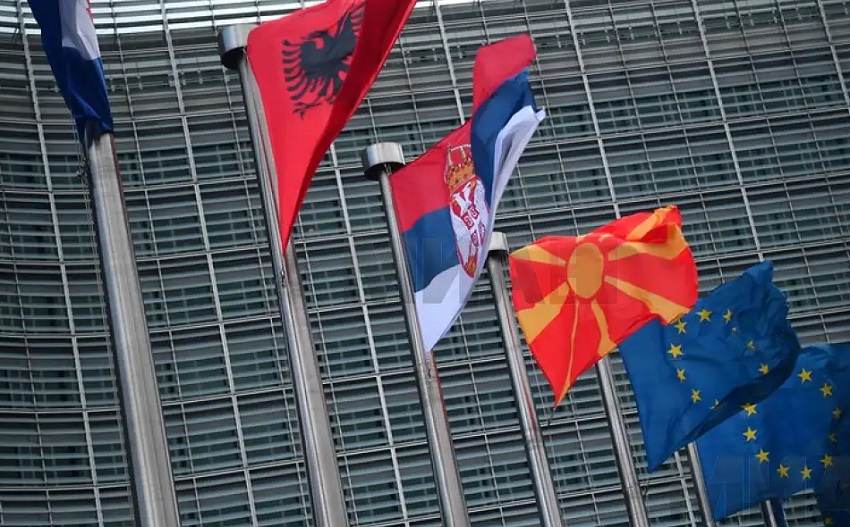Washington – The countries of the Western Balkans are sharply divided between the West and Russia, and the once strong support for accession to the European Union is now waning, shows a recent survey by the International Republican Institute (IRI), reported by the Voice of America in Macedonian.
The results of the survey conducted by the Washington-based research group in Albania, Bosnia and Herzegovina, Kosovo, Montenegro, North Macedonia, and Serbia, come at a time when the region is facing renewed ethnic tensions amid a slowdown in EU expansion and a rise in pro-Russian sentiments.
The survey showed that an overwhelming majority in Albania and Kosovo want their countries to follow an unequivocally pro-European and pro-Western course, while only 10 percent of respondents in Serbia gave the same answer. The majority of surveyed Serbs indicated that they want Serbia either to maintain ties with Russia or to pursue a pro-Russian foreign policy.
The survey found that 39 percent of Bosnians, 36 percent of Montenegrins, and 31 percent of Macedonians support an unequivocal pro-Western course.
– Generally, the pro-Western trend in the region is strong, with a few notable exceptions. Serbia is going against the other five countries in the region; it is more pro-Russian, blames the West for the conflict in Ukraine, and has a very low rating for joining the European Union, said Paul McCarthy, director of the International Republican Institute for Europe, to the Voice of America.
McCarthy said that the pro-Western trends are softening also in Montenegro and North Macedonia, despite them being NATO members, as well as in Bosnia, where Turkey has replaced the USA as the key ally to the Bosnian Muslims.
– People are losing patience with the wait to enter the European Union. Part of this is explained by the fact that Ukraine and other countries have been invited to membership, while most Western Balkan countries have been waiting for more than two decades in line to enter the European Union. The support for EU accession is starting to wane in those countries where it was very, very strong, said McCarthy.
However, the IRI survey showed that, with the exception of Serbia, a large majority in the other five Balkan countries would still vote for accession to the EU. (May 2)
